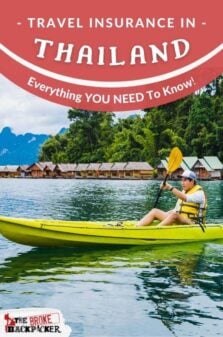Oh, Thailand. The ‘Land of Smiles’, with gleaming palaces and sleek cities. A country where you can take your pick of a golden beach or temple for every day of the year. Dive deep to explore vibrant coral reefs or frolic in a mud bath with an elephant then let your hair down until the sun rises. Try your hand at Muay Thai or whip up your own Pad Thai. Did we even need to remind you about Thai food?
Thailand is as much a mecca for intrepid backpackers as it is a magnet for luxury holidaymakers – and for good reason. This tropical, friendly, and cultural destination has heaps to offer visitors. In fact, Thailand attracted a whopping 39 million tourists in 2019 alone.
But before you slide into your elephant-print pants and grab yourself a chilled Chang, there’s one more thing you need to swot up on about Thailand. What could be more riveting than a guide to Thailand travel insurance?

Month to month payments, no lock-in contracts, and no itineraries required: that’s the exact kind of insurance digital nomads and long-term traveller types need. Cover yo’ pretty little self while you live the DREAM!
Visit SafetyWingDo I Need Travel Insurance For Thailand?
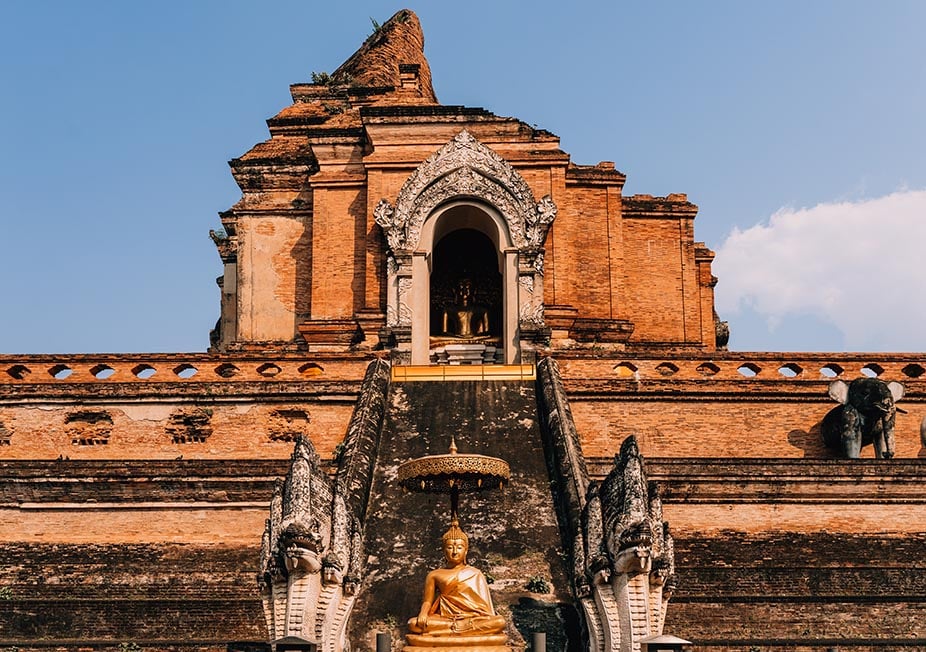
Image: Nic Hilditch-Short
The Broke Backpacker is supported by you. Clicking through our links may earn us a small affiliate commission, and that's what allows us to keep producing free content 🙂 Learn more.
Technically, no. Travel insurance is not mandatory for Thailand. A lot of backpackers in Thailand enter without it so you won’t be expected to show proof of purchase at immigration. So when you weigh up Chiang Mai treks and rooftop bars in Bangkok, you might consider shrugging off travel insurance in Thailand. But what if you have a trekking accident or end up losing your smartphone at the Sky Bar? That Bangkok travel insurance will be your new best friend.
Overall, Thailand is a pretty safe country for travellers, although it’s not without its dangers. Violence against tourists is rare, but assaults are still reported. While you are unlikely to get caught up in any political turbulence, sadly, Thailand isn’t without its unrest. As with all major traveller hubs, pickpocketing is common. There is a risk of catching a tropical disease.
And, crucially, if you’re planning on revving up a scooter, be mindful that crashes are frequent in Thailand and can be fatal. In 2018, motorbikes accounted for up to 70% of fatal crashes. Even if you’re only riding pillion, insurance for Thailand holidays can have your back.
At the end of the day, Thailand is an awesome country with so many cool things to do. We encourage all travellers to consider investing in travel insurance in Thailand. That way, you can try all the exciting things this country has to offer with peace of mind!
Need more convincing? Check out these other reasons why you should have travel insurance!

Unlock Our GREATEST Travel Secrets!
Sign up for our newsletter and get the best travel tips delivered right to your inbox.
Healthcare in Thailand
If you do get into a pickle, healthcare in Thailand is some of the best in the world; the sixth-best, to be precise. It’s so good, in fact, that Bangkok has become one of the hotspots for medical, cosmetic, and dental tourism. Not that your Bangkok travel insurance will cover you for a new nose, we’re afraid to report.
Thailand’s health service is three-tiered. Appointments are the priciest, and you can expect to be seen swiftly in the private sector, where facilities are of the highest standard. Government-funded healthcare is funded by the Ministry of Public Health. These services are reliable but can be extremely busy. Rates are lower than private healthcare. Non-profit health organisations operate to help disadvantaged Thais.
It’s worth noting that most medical practitioners in Thailand are specialists in their field, so some tourists may struggle to find a suitable doctor for minor health complaints. English-speaking medical practitioners can be found across the country, particularly in popular tourist destinations, such as major cities and the Thai islands.
Costs vary depending on the level of treatment you require and the hospital you visit. Healthcare in Thailand is significantly cheaper than in the West. All hospitals and clinics set their own fees, which will be provided on request. Typically, a Thai Doctor consultation will set you back 500 – 1000 baht ($15 – $30 ). Further fees apply for treatment, laboratory tests, and prescription medicine. Bear in mind that prescription medicine is more expensive at the hospital pharmacy. Shop locally for cheaper meds.
Travel insurance for visitors to Thailand should cover medical costs. Always check that the hospital accepts travel insurance and check that your Thailand travel insurance permits you to choose your own facility. Remember that if you plan to stray off the banana pancake trail, you might find healthcare is more basic.
Crime in Thailand
Violent crime against tourists in Thailand is very rare. Such instances are more likely to happen at night, so do be cautious when out partying or walking back to your hostel late at night, particularly if you’re on your own. Female travellers should exercise caution after drinking and late at night, as sexual assaults are more commonly reported following Full Moon Parties.
It’s not uncommon for travellers to fall victim to pickpocketing or petty theft in Thailand. Theft typically occurs when valuables are left unattended or shown off in the street as easy pickings. Thai thieves are not known for being confrontational, so muggings are rare, but they still can happen. It’s not unheard of for a sly motorcyclist to swipe a smartphone as they glide past an unsuspecting backpacker. So again, keep your valuables safe. Pick up a ‘bumbag’ at Khao San Road. You should be particularly cautious at beach bars, markets, on public transport, and in tourist-populated areas.
Back in the day, night buses in Thailand had a shady reputation for theft. Nowadays, theft is less common, but it does still happen. Keep your valuables secure on your person. Consider what the best insurance for Thailand is if you intend on travelling on overnight transport regularly. Most hotels and hostels in Thailand will have a 24-hour reception desk, CCTV, and lockers are usually provided. However, the cheapest dorms are likely to have less security.
Issues Facing Travellers in Thailand
We can harp on about the wonders of Thailand all day. But instead, we want to draw your attention to the key issues facing explorers in Thailand. Namely:
- Theft of personal goods – smartphones, laptops and expensive cameras attract the eyes of thieves. It’s also remarkably easy to drop your phone down the side of the seat during your island-hopping cruise or misplace it at a party.
- Motorbike crashes – one of the best ways to travel in Thailand is by motorbike. It’s also one of the best ways to wind up in the emergency room in Thailand. Even the most competent motorcyclist can be caught out by inclement weather or less able drivers. Before you purchase Thailand Travel Insurance, make sure you carry the right licence to cover you in the event of an accident.
- Tropical diseases – Dengue is endemic in Thailand. Usually, it can be treated in the same way you would treat the flu, but this disease can become more complicated and require hospitalisation. Trust us, a week in a Thai hospital is going to set you back way more than that $5 a night dorm bed.
When purchasing travel insurance for Thailand, we recommend checking that your policy covers all the issues above.
Common Activities in Thailand
Where can we begin! There are a number of high-octane activities to choose from in Thailand (we’re not just talking about sitting in the back of a tuk-tuk in Bangkok). Depending on what floats your boat, make sure your Thailand travel insurance covers the following activities:
- Hiring a motorbike – we’ve already said this, but to reiterate: the cheapest Thailand travel insurance may not include a clause about motorbiking. Make sure you’re covered with the correct license and check whether or not your insurance covers any damage to the vehicle.
- Trekking – whether in the mountainous north or while chasing waterfalls in one of the country’s glorious national parks, like Khao Sok, hiking in Thailand is something you should definitely try. But if you turn over on your ankle and need to hail a helicopter to the nearest emergency room, you might want to check you’re covered.
- Rock climbing – we’re looking at you, Tonsai. Tonsai Beach is renowned for its rock climbing, so if you fancy being shown the ropes, make sure your Krabi travel insurance has your back.
- Scuba diving – if you’ve got your heart set on finding Nemo, ensure that your Ko Tao travel insurance covers your underwater activities before taking that giant stride off the boat.
- And a note on full-moon parties – the backpacker rite of hedonistic passage is to attend one of these monthly shindigs. But remember, before you abandon your inhibitions (and your passport) for a dip in the moonlit ocean, thieves may be prowling along the sand. Check that your valuables are covered on your Thailand Travel Insurance.
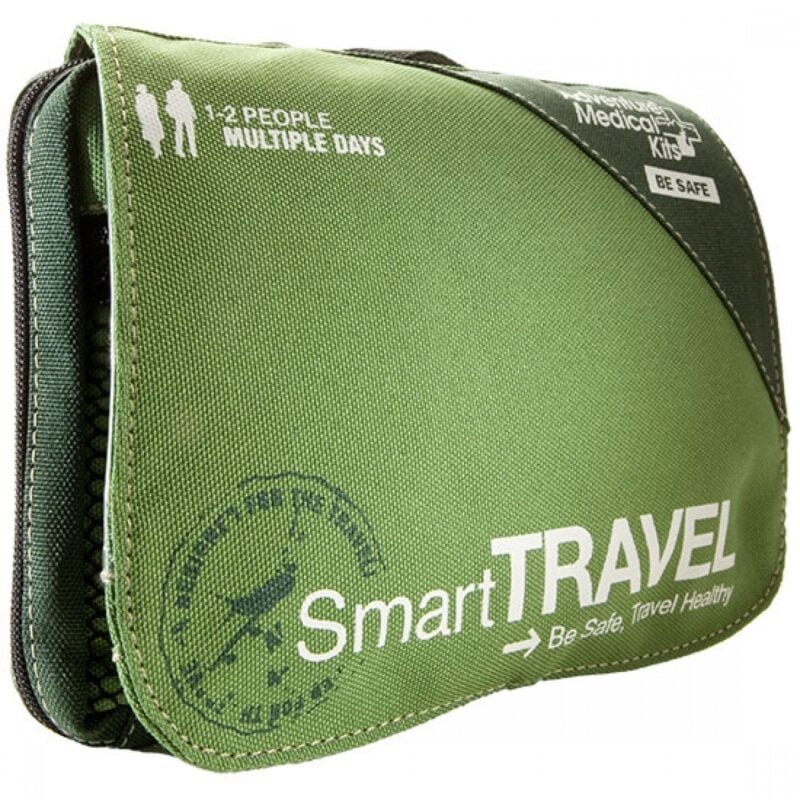
Things go wrong on the road ALL THE TIME. Be prepared for what life throws at you.
Buy an AMK Travel Medical Kit before you head out on your next adventure – don’t be daft!
Buy on REIWhat Should Travel Insurance in Thailand Cover?
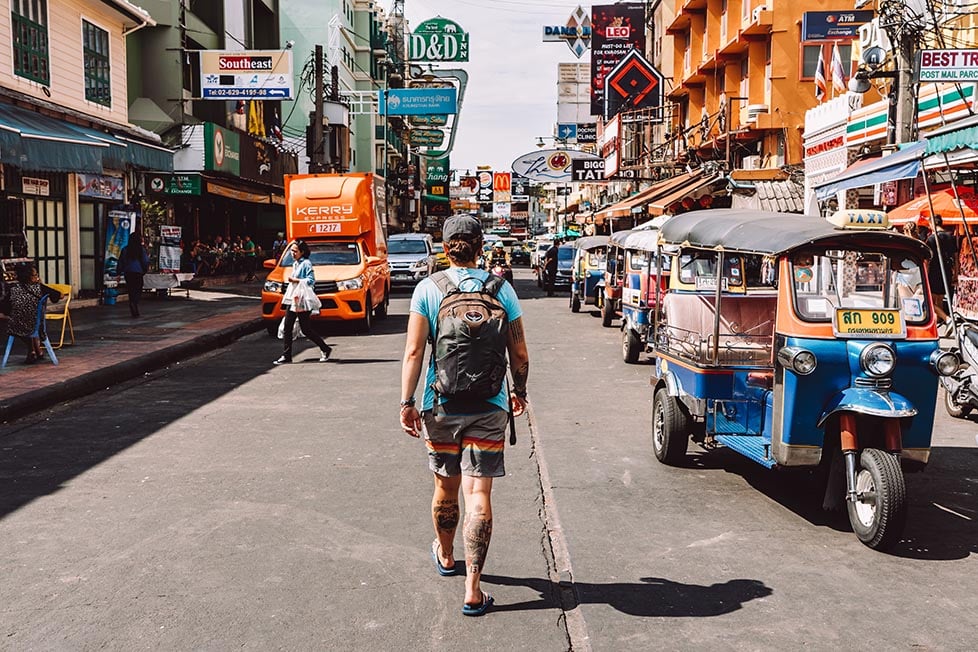
Image: Nic Hilditch-Short
More often than not, the majority of Thailand travel insurance policies will include the following;
- Emergency Accident & Sickness Medical Expenses
- Luggage and Personal Property
- Emergency Evacuation and Repatriation
- Non-Medical Emergency Evacuation
- Trip Cancellation
- Trip Interruption
These are some key terms to look out for when you are comparing different insurance policies. Now, let’s take a closer look at each one of these to see what they actually mean!
Emergency Accident & Sickness Medical Expenses
Emergency Medical costs cover, is the most important aspects of most travel insurance policies. If you are involved in an accident or get very sick with a mystery illness, you want to rest easy knowing that any medical costs and hospital bills will be taken care of.
Many of you will have never seen a medical bill. Good. But let me tell you, they can get very expensive very easily. My friend was once billed $10,000 in Costa Rica. Even 2 days in a Thai hospital cost him nearly $2,000.00 (that boy has no luck…).
Pre-existing medical and health conditions may not be covered or may be covered for an additional premium.
Ideally, Emergency Accident & Sickness Medical insurance should offer at least $100,000.00 of coverage. Some run into the millions.
Luggage and Personal Property
Luggage and Personal Stuff coverage covers the value of your personal property. It’s most common application is for lost luggage and However, many policies also extend this to cover “on the ground” theft which comes in useful if you are robbed once you reach your destination.
The limits on this vary between policies. However, the maximum value rarely exceeds $1000 with a maximum item value between – $250 – $500.
This is ok for many travellers. However if you travel with a lot of electrical gear (laptop & camera), or are packing ski-ing gear, you may also wish to think about taking out a separate gadget cover.
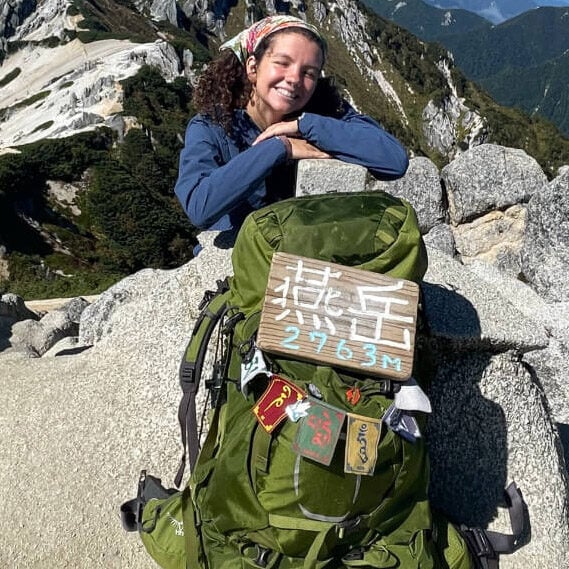
We’ve tested countless backpacks over the years, but there’s one that has always been the best and remains the best buy for adventurers: the broke backpacker-approved Osprey Aether and Ariel series.
Want more deetz on why these packs are so damn perfect? Then read our comprehensive review for the inside scoop!
View on OspreyEmergency Evacuation and Repatriation
Emergency evacuation covers the cost of sending you back to your home country in a sickbed. Let’s say that the above mentioned illness is a nasty one, and the decision is taken to send you home for further treatment; this will take care of the high costs of flying you home with tubes stuck into your arms.
Repatriation is the cost of sending your body home in the unlikely event that you die on your trip. The costs of this are usually very high. Repatriation costs are not a burden I would want to leave to my family. Whilst this is thankfully rare, I do sometimes come across Facebook or “Go Fund Me” campaigns for somebody’s body to be flown home.
Non-Medical Emergency Evacuation
Non-medical Emergency Evacuation is when you have to be evacuated from your destination because of some unexpected crisis. Examples can be outbreaks of war/civil unrest and earthquakes that decimate infrastructure such as the Nepal earthquake.
In more recent times, the Corona COVID-19 outbreak created the biggest international emergency evacuation situation ever. (FYI – it straddled both the medical and non-medical evacuation boundaries).
Emergency evacuation insurance covers the costs of having to book a last-minute flight home (which can be very expensive) and will also cover accommodation costs if you end up being flown to a random, “safe” country rather than going straight home.
Trip Cancellation
Having to cancel a trip that you were psyched about is heartbreaking. However, then being left out of pocket just adds scurrilous insult to grievous injury. Trip Cancellation cover can help you recover the non-refundable costs of your trip such as flight and hotel costs.
Obviously, you can’t claim this simply because you changed your mind about the trip or broke up with your girlfriend. Legitimate cancellation reasons are things like sickness, family emergencies, bereavement, natural disaster and war – you get the gist.
Trip Interruption
Trip Interruption is when something goes wrong, or interrupts, your trip leaving you out of pocket. One example, when your pre-paid hotel burns down and you are forced to book another one. Another example is when your flight home is cancelled and you need a few extra nights at your hotel.
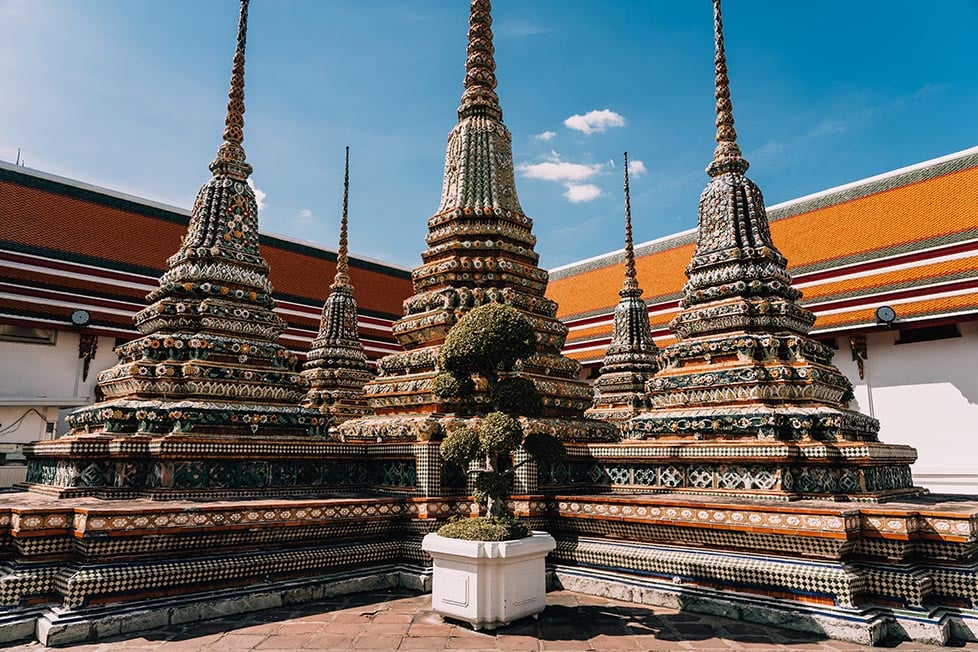
Image: Nic Hilditch-Short
Anything Else?
The above are what we consider to be the basic, bare-bones of travel insurance policies. However, some policies do offer a few more aspects to them. The very best Thailand travel insurance policies may also include the following;
Adventure Sports and Activities
Adventure sports and activities are not covered by all travel insurance policies. The definition of adventure sports and activities really does vary between providers but for example, can include;
- Hiking
- Canoeing
- Martial Arts
- Bungee Jumping
- Scuba Diving
- Informal basketball games….
If you are even thinking about doing anything physical or outdoorsy on your trip, it is very wise to check that your insurance provider is in fact covering it. Snapped tendons tend to hurt plenty enough without having hefty medical bills attached to them.
Accidental Death and Dismemberment
This one is perhaps a bit macabre. It doesn’t cover any travel related expenses as such but instead it basically provides you (or your next of kin) with monetary compensation in the event that something happens to you. If you die, your loved ones get a payout. Or, if you lose a toe or something, YOU get a payout.
It’s kind of like having a bit of life cover attached to your travel insurance.
“Well dear, I’m afraid there is good new and bad news. The bad news is that our beloved daughter little Jenny died on her trip to Thailand. The good news is that we get $10k! Thailand here WE come!”
Gear and Electronics Cover
Some insurance policies cover electronic gadgets but others do not. Those that do, sometimes charge an additional fee and they also usually limit the maximum item value. If you only travel with a phone or a tablet then your travel insurer may well cover it entirely. However, if like us if you are traveling with a decent laptop and camera, then you may wish to consider obtaining gadget cover.
I have personally had separate gadget cover on my MacBook Pro for years.
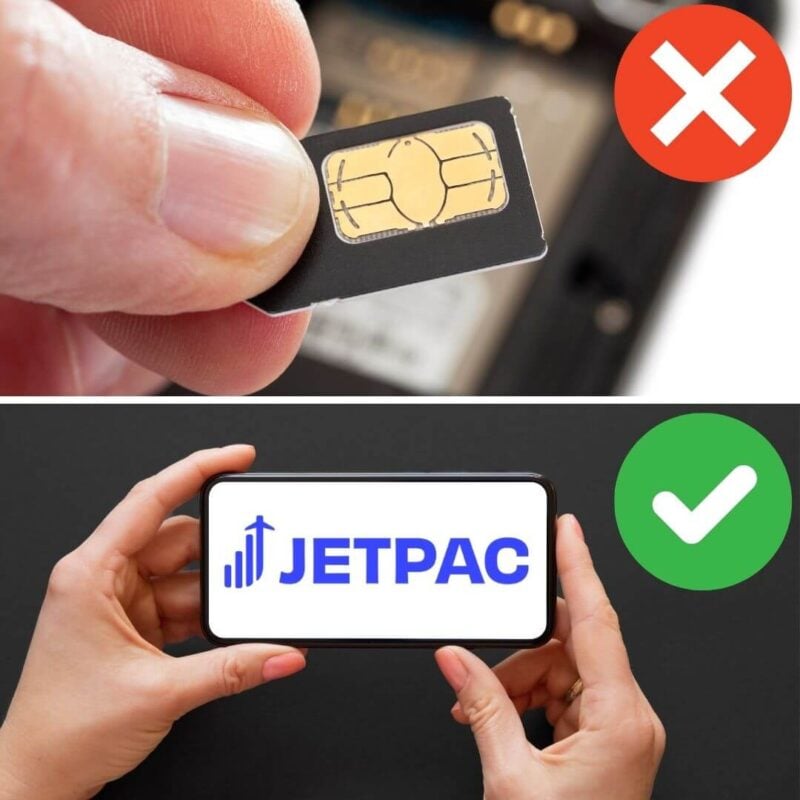
A new country, a new contract, a new piece of plastic – booooring. Instead, buy an eSIM!
Jetpac eSIMs work just like an app: you download it, pick your plan, and BOOM! You’re connected the minute you land. It’s that easy.
Read about how e-Sims work or click below to see one of the top eSIM providers on the market and ditch the plastic.
Grab an eSIM!What Is The Best Thailand Travel Insurance
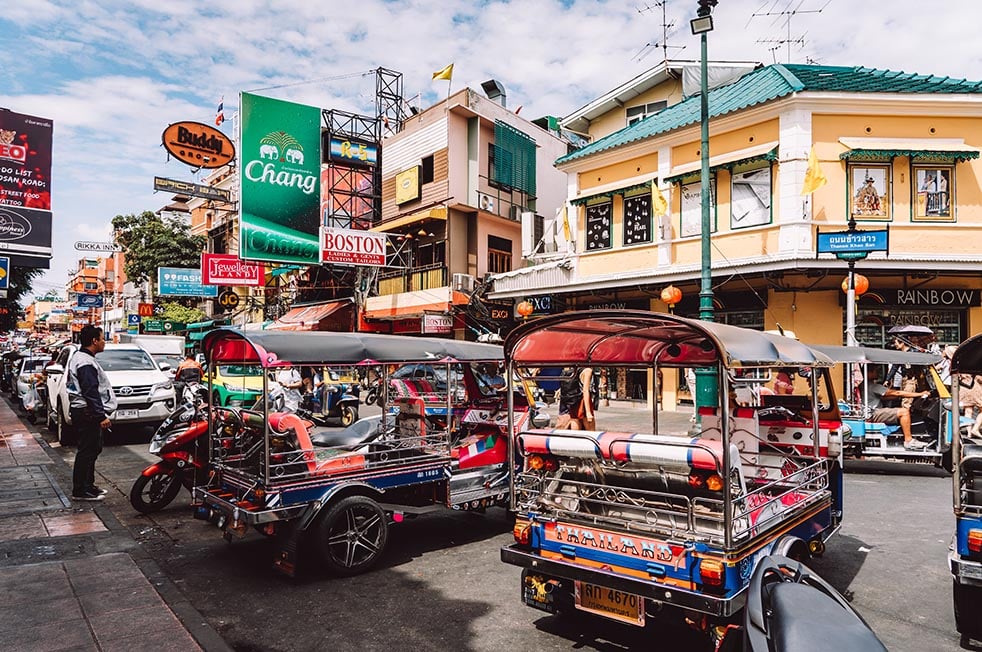
Image: Nic Hilditch-Short
Whilst they may all seem the same, not all insurers are. Some insurers offer lower prices than others and others offer higher coverage amounts. Some are infamous for not paying claims whilst others are celebrated for being fair and helpful.
Travel insurers – always the same yet always different. It isn’t possible (or legal) for us to say that anyone of them is the best, or is “better” than the others. No. Insurance is a very complex product and any policy takes into account a whole lot of data and a wide set of variables.
Remember that the “best” travel insurance always depends on where you are going, when you are going there and ultimately upon you and your needs. The best travel insurer for one trip, may not be the best for a different trip.
Below, we will introduce a few of the many travel insurance providers on offer. These are all firms we have used ourselves over the years.
| What is Covered? | Iata Seguros | SafetyWing | Heymondo Single Trip Plan | Columbus Direct |
|---|---|---|---|---|
| Emergency Accident & Sickness | $200,000 | $250,000 | $10,000,000 | $1,000,000 |
| Baggage & Personal Property | $1000 | $3000 | $2,500 | $750 |
| Emergency Evacuation and Repatriation | 100% of cost | $100,000 | $500,000 | $1,000,000 |
| Non-Medical Emergency Evacuation | $0 | $10,000 | $10,000 | $0 |
| Trip Cancellation | $1,500 | $0 | $7,000 | $1,000 |
| Trip Interruption | 100% of cost | $5000 | $1,500 | $750 |
SafetyWing
SafetyWing are a relatively new player in the travel insurance space but are already making big waves. They specialise in cover for digital nomads and they offer open-ended cover on a monthly subscription basis. Because they primarily cover digital nomads, they don’t offer much in the way of trip cancellation or delay so do take that into consideration.
However, SafetyWing really excels on the health side of travel insurance, covering dental and some complimentary treatments. In fact they even allow young children to be covered for free.
If cancellation and delay is not a concern for you or if you will be spending some considerable time on your trip, then maybe SafetyWing are right for you
- Emergency Accident & Sickness Medical Expenses – $250,000
- Baggage and Personal Property – $3000
- Emergency Evacuation and Repatriation – $100,000
- Non-Medical Emergency Evacuation – $10,000
- Trip Cancellation -$0
- Trip Interruption – $5000
If you need more information or want to get a quote, then you can visit the website for yourself.
World Nomads
World Nomads have been supporting and encouraging travellers to explore their boundaries since 2002. Designed by travellers for travellers, they offer simple and flexible travel insurance covering multiple countries and a lot of adventure activities.
If you leave home without travel insurance or your policy runs out, you can buy or extend while on the road.
World Nomads provides travel insurance for travelers in over 100 countries. As an affiliate, we receive a fee when you get a quote from World Nomads using this link. We do not represent World Nomads. This is information only and not a recommendation to buy travel insurance.
Faye
The savvy fin-tech insurer Faye provides whole-trip travel coverage and care that brings out the best in each journey with industry-leading technology that enables smarter and smoother assistance with faster claims resolutions. Their excellent app-based travel insurance covers your health, your trip and your gear all via an app that provides real-time proactive solutions, quick reimbursements and 24/7 customer support.
If you ever do need to make a claim, then you simply log in to the app and the claim will be assessed super quickly from anywhere in the world! My friend made a claim and was able to manage everything directly on the app. She was even able to purchase ‘Cancel for Any Reason’ Insurance that allows you to quite literally cancel for any reason, and be refunded up to 75% of non-refundable bookings.
Best of all, if the claim is successful then the funds will be immediately credited to the smart wallet on your phone or device and ready for you to spend.
Columbus Direct
Named after one of history’s greatest (and most divisive explorers), Columbus Direct also specialise in insuring adventure-hungry explorers like us. They have been providing award-winning insurance for 30 years. What we like about this plan is that it does cover small amounts of personal cash. However, Gadget Cover is not available.
Columbus Direct actually offers a number of different travel insurance plans. Below we have focused on 1 of these and have set out the coverage amounts for the Globetrotter plan.
- Emergency Accident & Sickness Medical Expenses – $1,000,000
- Baggage and Personal Property – $750
- Emergency Evacuation and Repatriation – $1,000,000
- Non-Medical Emergency Evacuation – $0
- Trip Cancellation -$1,000
- Trip Interruption (“Catastophe”) – $750
If you need more information or want to get a quote, then you can visit the website for yourself.
Iati Seguros
Iati Seguros is a Spanish based travel insurance company who we have personally used and loved. You will notice that they provide competitive cover amounts for the key travel insurance areas, and are competitively priced. So far we have heard nothing but good things about them.
They also offer multiple ones, but we have focused on the Standard Plan although we wholly encourage checking out all plans for yourself to identify the best one for your needs.
Standard Plan
- Emergency Accident & Sickness Medical Expenses – $200,000
- Baggage and Personal Property – $1000
- Emergency Evacuation and Repatriation – 100% of cost
- Non-Medical Emergency Evacuation – $0
- Trip Cancellation -$1,500
- Trip Interruption – 100% of cost
If you need more information or want to get a quote, then you can visit the website for yourself.
Insure My Equipment
Insuremyequipment.com does precisely what the name suggests. They are an online insurer for expensive equipment (like camera gear & gold clubs). You can use them to get specific pieces of gear insured but please bear in mind this policy is only for your specified gear.
An Insure My Equipment policy works well in combination with other travel insurance. Insure My Equipment policies are an excellent choice for professionals and backpackers with more $0000’s worth of camera equipment, expensive laptops or fishing rods.
I also know a few travelling musicians and DJs who use these guys so you are in cool company.
How To Choose The Right Thailand Travel Insurance For You
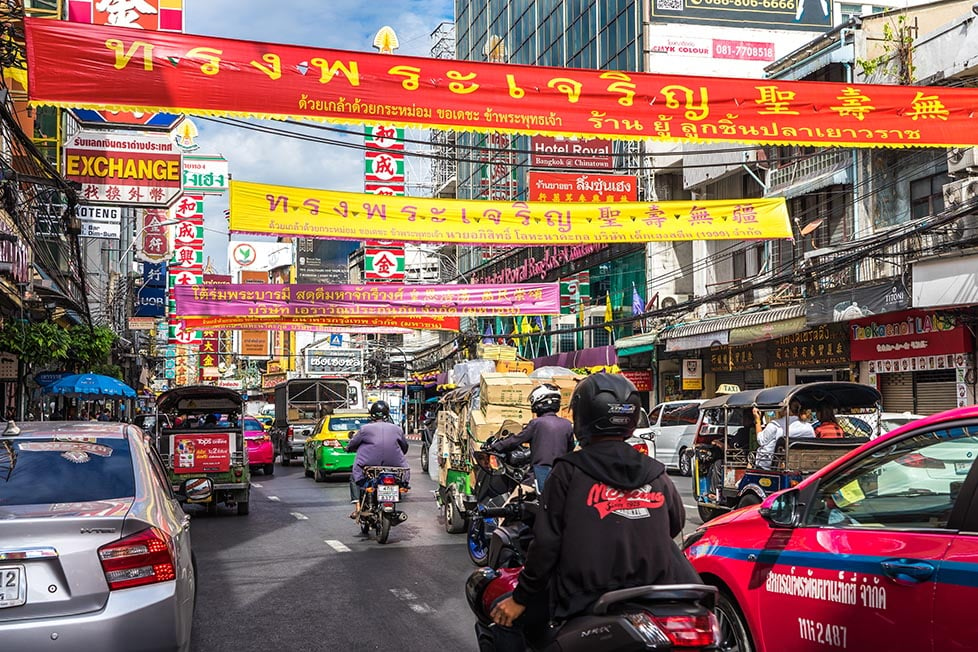
Image: Nic Hilditch-Short
Choosing the right travel insurance for your Thailand holiday is like choosing a pair of shoes. Only you can really say how well they fit, and how many miles you can manage in them.
To decide who the right insurer for you is, you need to add up how much your trip is worth, how much equipment you plan to take with you and what activities you intend to engage in.
You also need to ask yourself how much you can afford. This means how much you can afford to pay for cover but also how much you can afford to be out of pocket in the unlikely event of an incident. Sometimes, the cheapest Thailand travel insurance will be enough and sometimes it will be worth spending a bit more.
Hopefully the information provided in this post will help you to decide. If not, then I guess I just wasted 7 hours of my life in writing it.
Final Thoughts on Thailand Travel Insurance
Still awake? We know travel insurance isn’t the wildest travel topic to muse over when planning your next trip, but needs must. And in a crazy place like Thailand, it’s useful to know what to expect should a medical or emergency situation arise.
Hopefully, this guide has helped you find the most suitable – or at least the cheapest – Thailand travel insurance for your needs. Now, you can focus on researching the best Thai island and browsing (ethical) elephant sanctuaries. Once you’ve found your match with the best insurance for Thailand, check out some of our travel guides to the Land of Smiles.
Buy Us a Coffee!
A couple of you lovely readers suggested we set up a tip jar for direct support as an alternative to booking through our links. So we created one!
You can now buy The Broke Backpacker a coffee. If you like and use our content to plan your trips, it’s a much appreciated way to show appreciation 🙂




